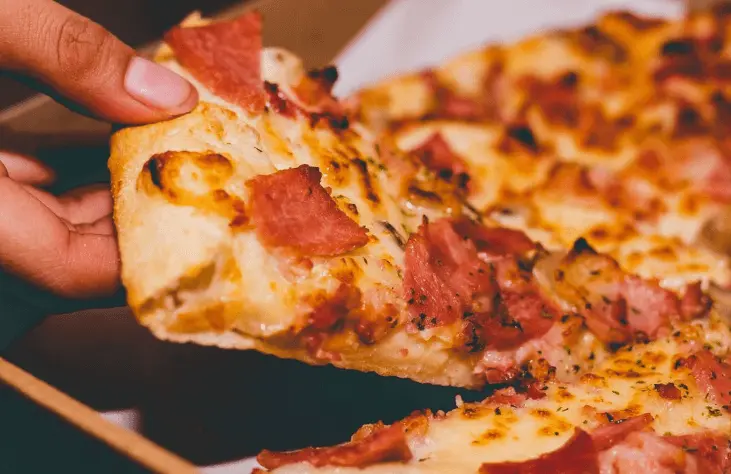Low carb diet has been one of the most popular diets for years. This diet requires you to restrict carbohydrates. Low carb diet is high in protein and healthy fat. This diet involves numerous healthy vegetables in each meal.
Do you love eating desserts? Then, following this diet, you will have to give up on all your favorites like sugary foods, bread, pasta, and pizzas. Maintaining a healthy lifestyle and a proper diet is difficult, especially in the beginning but it is worth it as it will improve your overall fitness and health.
There are various types of low-carb diets that you may choose to follow. Usually, a low-carb diet is recommended for weight loss. Apart from weight loss, certain low-carb diets have other health benefits like decreasing the risk of maintaining type 2 diabetes and increasing your metabolism.
You can follow this diet even if weight loss is not your primary goal. It helps you change your food habits and prevents you from eating unhealthy, processed, and junk food.
Below are the various types of low-carb diets that you can follow:
There are 8 types of low-carb diets.
A conventional low-carb diet:
This diet simply restricts carb intake. It tends to have high protein content in every meal and fewer carbohydrates. It incorporates meat, eggs, fish, nuts, fruits, and vegetables into your everyday meals. Following this diet, you need to cut out on foods like sugary drinks, junk food, and potatoes.
The amount of carbohydrates to consume every day is dependent on your goal. On average, 100 to 150 grams of carbohydrates can be consumed if your main aim is maintaining your weight or if you are doing high-intensity workouts regularly.

If your goal is steady and healthy weight loss, 50 to 100 grams of carbohydrates are recommended.
Low carb, high-fat diet:
This eating pattern is very low in carbohydrates. It primarily focuses on incorporating unprocessed and whole foods. The recommended intake of carbohydrates while on this diet is 20 to 100 grams. The LCHF diet focuses on meats, healthy fats, vegetables, eggs, nuts, and dairy products.
Ketogenic diet:
The Keto diet has become one of the most popular diets in recent years. It is very low in carb content and high in fat. It has become quite popular as makes you lose fat and reduce appetite as well. It makes your body go into a state called ketosis where the body’s insulin levels drop and releases fatty acids from its fat reserves.
The liver converts these fatty acids into ketones which supply energy to the brain. Now, the brain runs more on the energy derived from the ketones than glucose. This diet usually restricts protein intake as well.
Apart from the standard ketogenic diet, two variations of this diet are commonly seen which involve adding carbs strategically.
In the Targeted ketogenic diet, little amounts of carbohydrates can be consumed around exercising while in the Cyclical ketogenic diet, you need to have a high carbohydrate diet 2 days a week.
Atkins diet:
As per recent studies, the Atkins diet is a safe and effective low-carb diet if an adequate amount of fiber is consumed. It involves eating as much protein and fats as possible and reducing carbs effectively. It operates in four phases.
Induction phase: Eat about 20 grams of carbs per day for two weeks continuously.
Balancing phase: Add more fruits, nuts, and low-carb vegetables.
Fine-tuning phase: When the desired weight is almost achieved, add more carbohydrates until the weight loss slows down.
Maintenance phase: Eat healthy carbs in this phase until you do not gain the weight that you have lost.
Low carb Mediterranean diet:
This Mediterranean diet is very popular. This diet involves traditional Mediterranean foods. It is said to be beneficial in preventing heart diseases, diabetes, and breast cancer. It incorporates more amounts of fatty fish than red meat. It requires you to eliminate high fats like butter and use extra virgin olive oil.
Zero carb diet:
A zero-carb diet is completely devoid of carbohydrates and primarily involves animal foods. You are supposed to eat meat, fish, eggs, and other animal fats like butter. This diet is not recommended as it lacks other vital nutrients like fiber and vitamin C.
Not much research has been done on this kind of diet. Therefore, it is usually not recommended to follow a zero-carb diet.
Low carb paleo diet:
One more very common low-carb diet is the paleo diet. This is based on the food patterns that were followed in the paleolithic era. It eliminates processed foods from your diet. The commonly emphasized foods are meat, eggs, fish, vegetables, fruits, nuts, and seafood.
The Paleo diet also eliminates dairy, sugars, and grains. A low-carb paleo diet is much lower in calories than western foods and aids in weight loss.
Eco-Atkins diet:
The vegan version of the Atkins diet is the eco-Atkins diet. It adds high protein and high-fat plant foods such as plant oils, gluten, nuts, and soy. Only 25% of the whole calorie intake comes from carbohydrates while the rest comes from protein and fats. Studies have shown that this diet aids weight loss much more effectively and also reduces the risk of heart disease.
Foods to avoid:
- Sugars: ice creams, fruit juices, carbonated or soft drinks, and other foods that contain added sugars.
- Refined grains: Bread, pasta and cereal, rice, barley, and wheat.
- Processed foods: Do not eat anything that is processed. (Always eat natural, unprocessed, whole foods).
- Starchy veggies: These vegetables are high in carbohydrates. Avoid them as much as possible.

Make sure to read the list of ingredients when buying as they may contain processed foods. Foods labeled as “healthy” are not always healthy.
Foods to include:
- Meat: chicken, pork, lamb.
- Fish: salmon, haddock, and others.
- Eggs
- Vegetables: especially green leafy vegetables like spinach and cauliflower.
- Fruits: oranges, apples, strawberries, and blueberries.
- Nuts and nut butter.
- High-fat dairy products: butter, cheese, yogurt.
- Olive oil, coconut oil, and fish oil.
You may already know how easy it is to overeat nuts and cheese. Hence, restricting the amount of nuts or cheese you consume is suggested. You may also eat some amount of organic dark chocolate with 70% cocoa. If you enjoy drinking wine, go for wines that have zero carbs and added sugars.
Few low-carb diet tips:
Low carb diet is indeed a challenging diet, especially in the beginning. Here are a few things to keep in mind while on a low-carb diet.
To know the low carb foods: fish, meat, eggs, green leafy vegetables, nuts, seeds, nut butter, olive oil, and some fruits.
Make a meal plan: Make a meal plan ahead of time so that it’ll be easier. It may help you stick to the diet. Meal planning is known to prevent one from eating junk or processed foods at fast food restaurants.

You may find meal planners online or can plan your meals on apps like Wryll. Preparing meals ahead of time can also be beneficial as it saves you time and reduces confusion and the urge to order food from restaurants.
Serving sizes and carb count: Most low-carb diets require you to consume only 20 to 30 carbohydrates per day. So, it is essential to know the carb count in a serving size to avoid consuming excess carbohydrates. It is also important to keep in mind and consume the other essential nutrients as well.
Low-carb snacks: Feeling hungry in the middle of the day is natural. At these moments, we tend to eat something unhealthy or high in carbs. Carrying low-carb snacks like hard-boiled eggs, carrots, cheese, nuts, and unsweetened yogurt with you will serve your hunger and avoid junk at the same time.
Learn about the potential health risks associated with a low-carb diet: Following a diet does not mean working towards a certain goal blindly. It is crucial to know the side effects and shortcomings of the diet that you follow.
Low carb diet has both short-term and long-term effects on your body. It can cause constipation, headache, nausea, lack of energy, brain fog, and bad breath.
These are some of the short-term health risks whereas nutritional deficiencies and gastrointestinal complications are the long-term health risks. Low carb diet can also reduce bone density.
Weight loss: Low carb diet is proven to be very effective in weight loss but only to a certain point in time. It is not the best way of losing weight as it is not sustainable or long-term.
Conclusion
When you are planning on following a certain diet, it is always recommended to consult a doctor or a nutritionist and check if it is suitable for you. It is also necessary to check if you have any health conditions.
If you want to go for a low-carb diet, you may choose a diet plan that is best suited for your lifestyle and health goals, and food preferences. Do not go for a popular one as it might not be the right diet for you and the goal that you want to achieve.
Go for a diet that you can follow every day consistently without any difficulty and enjoy it. You see better results when you enjoy the process.
